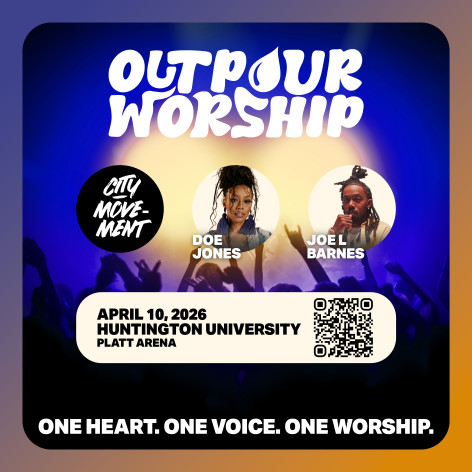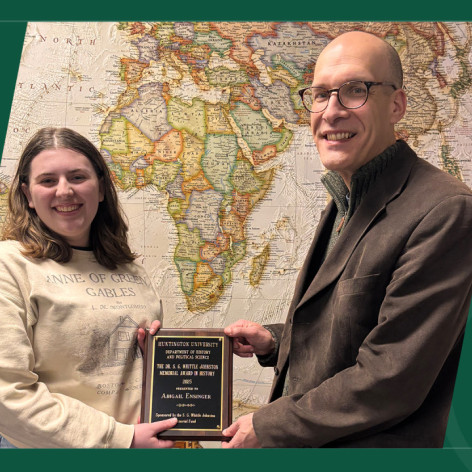Dobson to Graduates: “Be there.”
HUNTINGTON, IN May 23, 1997 --- Dr. James Dobson, president of Focus on the Family, presented the 1997 commencement address at Huntington College on May 17. Before an audience of 3,500, he challenged the graduates to maintain proper perspective as they celebrate their academic accomplishments and launch careers. He urged them to "climb the right ladder."
Dr. Dobson, his wife Shirley, and retiring science professor Dr. Robert Hale were presented honorary degrees by Huntington College during the ceremony. The 100-year-old Christian liberal arts school is located in Huntington, Indiana.
Dr. Dobson's comments dovetailed with the baccalaureate address of Dr. Steve Lee, professor of psychology at Huntington College. Lee took his sermon text from the account of Jesus' transfiguration. He told the graduates to "enjoy the mountaintop experience this day represents, then move on." Most of life, Lee said, is lived "between the mountaintops."
Dobson picked up this theme in his opening remarks to the graduates. He recounted his ambition as a college freshman to win his school's tennis tournament. By the end of his senior year, Dobson said, he had won the tournament twice, and a trophy inscribed with his name was placed on permanent display" or so he thought.
Some years later, a friend sent the trophy to Dobson. He had found the "permanent" trophy in a garbage bin. Dobson's tennis victory had been forgotten.
Dobson proudly displayed the trophy to his audience. "You are all welcome to file by and look at it," he quipped. "Life is like that," he said. "Given enough time, life will trash your trophies."
He went on to recount the stories of many outstanding athletes who once were household names but now are largely forgotten. He also spoke with great pathos of Mohammed Ali, once the greatest fighter in the world, now debilitated by Parkinson's disease.
"Many of you have big plans and big dreams," Dobson said." "That's good. It's natural and it comes from the Lord." Dobson encouraged the graduates to use their talents and training to achieve, but urged them to apply an "end-of-life test" to every undertaking. The only things that matter at the end, said Dobson, are "whom you love, who loves you, and what you did together in the service of the Lord."
"Success and achievement are really not all that important in life as ends in themselves. They tend to tarnish with the passage of time."
To underscore his point, Dobson related the story of Pete Maravich, "one of the top five basketball players of all time." Maravich's fame and financial success did not bring him happiness, Dobson said. For many years, he tried to find satisfaction in wild living and heavy drinking. It was not until after his retirement from basketball that Pete Maravich found true happiness in Christ. "He gave his heart to Jesus Christ, and for the next five years, he was on fire for the Lord," Dobson said.
Learning of his conversion, Dobson invited him to appear on his radio program in 1988. After the interview, they played a game of pick-up basketball with several others. When the game ended, Dobson turned to Maravich and said, "Pete, you can't give up basketball. This game means too much to you."
Maravich explained he had experienced pain in his right shoulder for more than a year, but now it had disappeared. "I feel just great," he said.
Those were his last words.
Maravich collapsed on the basketball court, and minutes later, died in Dobson's arms.
"Later that day, I sat down with my son Ryan, who was 17 at the time," Dobson said. "I told him that what happened to Pete wasn't an isolated event. This is the human condition. This is all of us. It will happen to me some day."
Two years later, Dobson suffered a heart attack on the same basketball court.
"Pete Maravich didn't have an opportunity to speak with his family one last time. But I want to tell you, be there. On resurrection morning, be there. I will be looking for you then. Nothing else matters. Be there."



